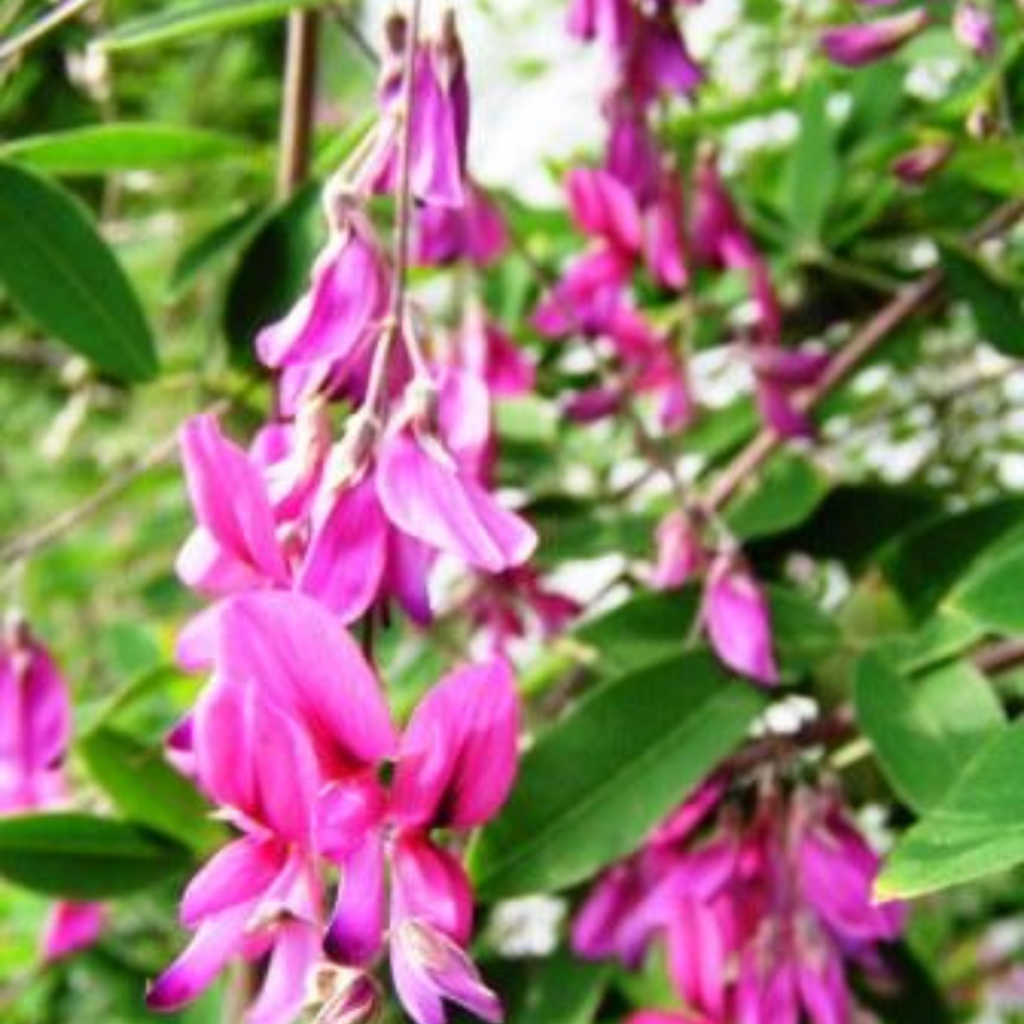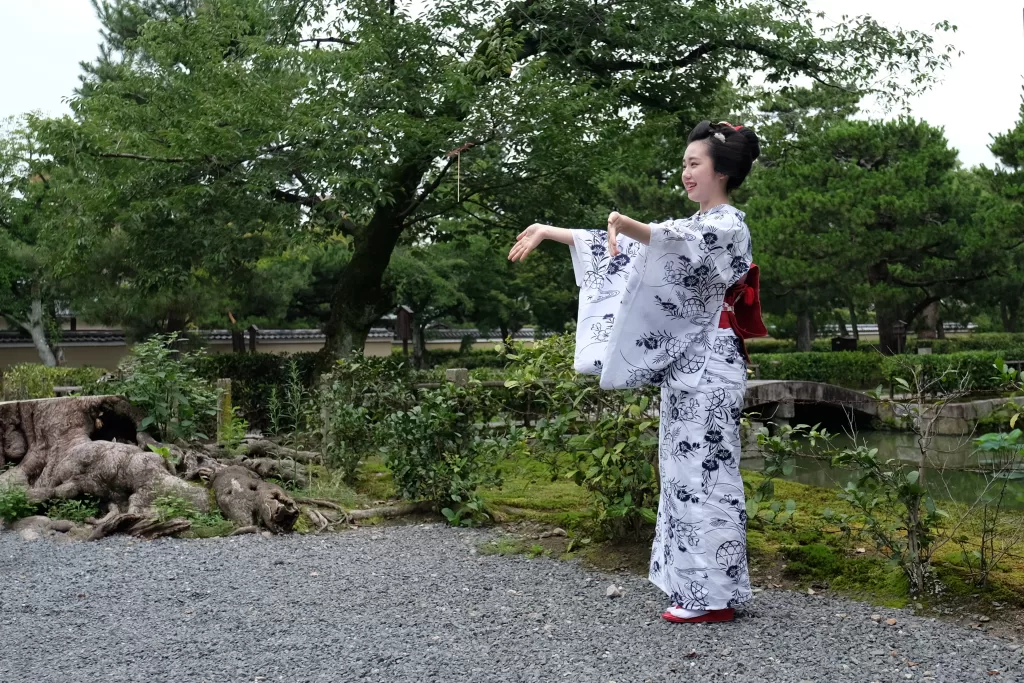Hagi Matsuri: A Celebration of Japanese Culture and Tradition at Nashinoki Shrine

The Rich History of Nashinoki Shrine and the Importance of Hagi
Nashinoki Shrine, located east of Kyoto Imperial Palace, is known for its lush and vibrant Japanese bush clovers or Hagi (萩). Steeped in ancient history and cultural significance, Hagi is one of Japan’s seven flowers of autumn, alongside balloon flower, large pink dianthus (nadeshiko), kudzu vine, Japanese silver grass, golden lace, and thoroughwort. In fact, it holds such importance that it is featured as the most used botanical word in Manyoshu (万葉集), the oldest anthology of poems compiled in the 8th century.
The shrine itself was established in 1885 and commemorates Sanetsumu Sanjo (1802–1859) and his son Sanetomi (1837–1891), both revered masters of learning and acting who played a vital role in Japan’s Meiji Restoration. Their contribution to preserving Kyoto’s culture during a time when the Emperor and capital were moving to Tokyo has left a lasting impact on the region.
An Array of Cultural Performances at Hagi Matsuri
This year’s Hagi Matsuri (Bush Clover Festival) will take place from September 23rd to 25th at Nashinoki Shrine. Attendees can look forward to a diverse program paying homage to various traditional arts and performances.
Ikebana Flower Arrangement
One of Japan’s most cherished art forms is ikebana, or Japanese flower arrangement. Visitors can immerse themselves in this elegant practice that fosters a deep appreciation for nature’s beauty.
Kyōgen Comical Plays
Presenting witty kyōgen comical plays to entertain audiences, the Bush Clover Festival offers a delightful show comprising lighthearted humor and skilled acting that reflects ancient Japanese values.
Diverse Dance Performances
The celebration additionally features a range of dance styles, including performances by different schools of female dance and bugaku (ancient court-style dance). These dances showcase the grace, poise, and rich history of Japan’s performing arts.
Traditional Instrumental Pieces
Musicians using traditional instruments like the shakuhachi flute and koto will delight audiences with captivating tunes that transport listeners back to ancient times, echoing the distinct rhythms of Japan’s rich musical heritage.
Kyūdō Archery Demonstrations
Kyūdō archery enthusiasts can also soak in demonstrations showcasing the impressive skills required for this ancient martial art. More than just a sport, kyūdō is an exercise in meditation, discipline, and mindfulness.

Celebrating Poetry and Time-Honored Traditions Amidst Nature’s Beauty
Bringing literary tradition to life, worshipers at Hagi Matsuri write poetry on pieces of paper and tie them to the bush clovers found throughout Nashinoki Shrine. Festival goers can participate or simply enjoy reading the heartfelt expressions tied to these bushes as they stroll through the serene garden.
Meanwhile, visitors can indulge in tea ceremonies using high-quality green tea made from the Somenoi water well in Nashinoki shrine—one of central Kyoto’s three best waters. The festival also hosts a haiku society meeting, where poets gather before attending the main festivities to compose their works. Hagi Matsuri at Nashinoki Shrine is one of the most awaited Kyoto events in September.
Hagi Matsuri offers guests not only a chance to appreciate nature’s splendor but also an opportunity to experience Japan’s cultural wealth and historical treasures. As autumn gathers momentum in mid-September, take a moment to visit Mukojima-Hyakkaen Gardens—a nationally-recognized scenic and historic spot—to revel in nature’s beauty while immersing yourself in traditional Japanese arts.
If you love exploring Kyoto, try to check out Yoshitsune-sai. Yoshitsune-sai is just one of the many festivals and events in Kyoto. It is a festival at the historic Kurama Dera Temple in Kyoto to honor the legendary samurai, Minamoto no Yoshitsune.